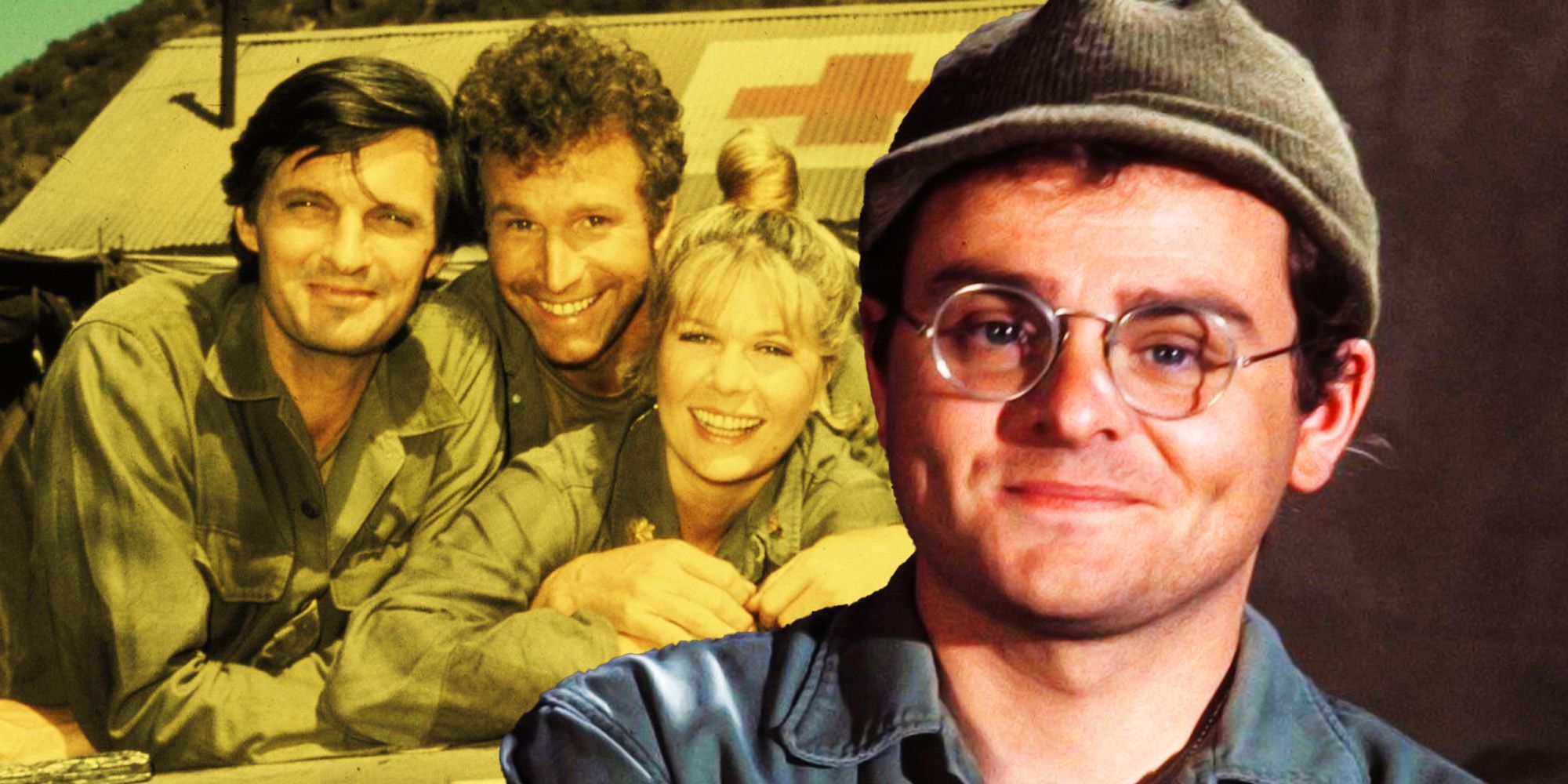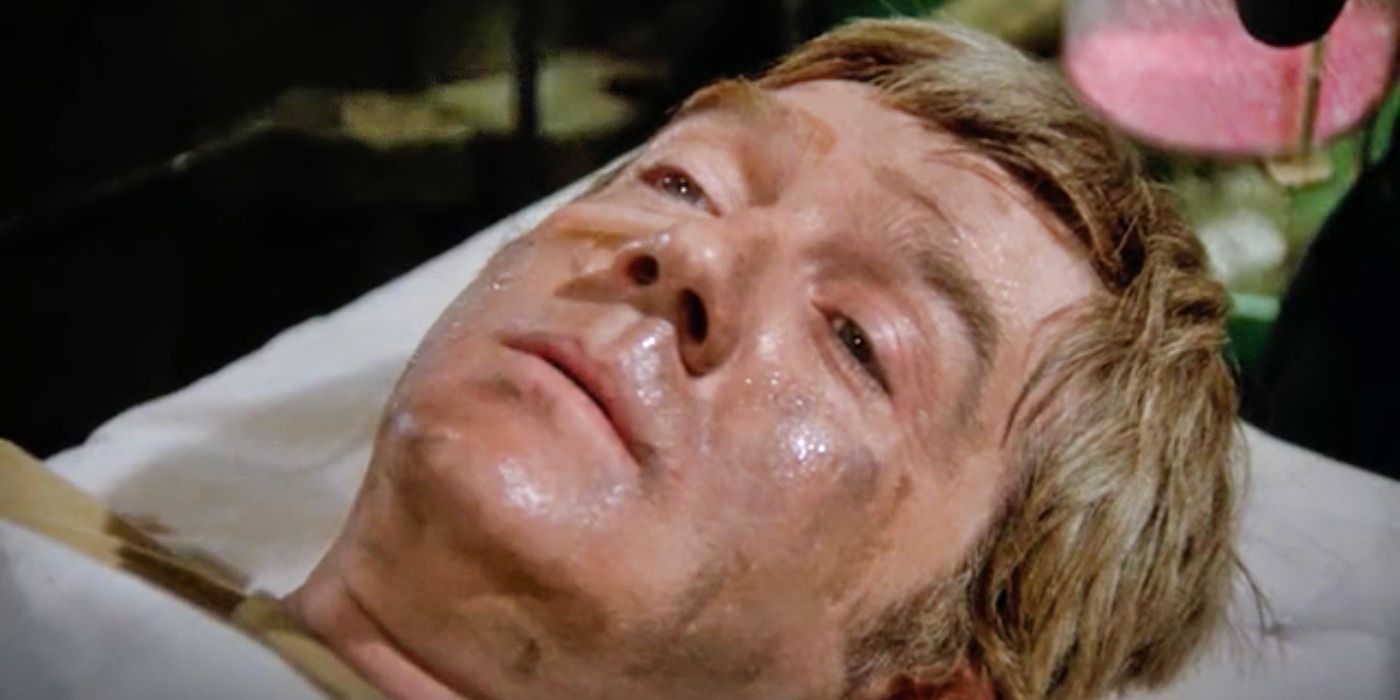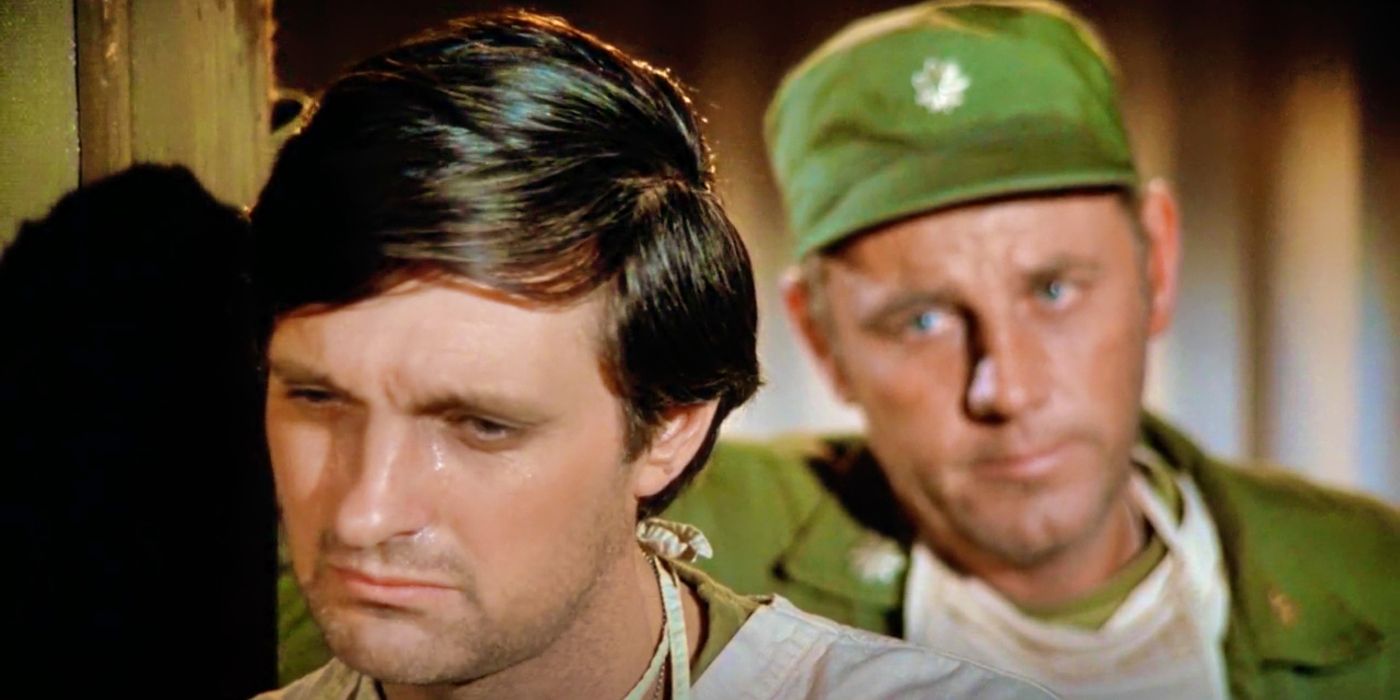
Henry Blake’s Death Didn’t Drastically Change MASH, But This Season 1 Episode Did
Summary
- Henry Blake’s death wasn’t the first major point of transformation for MASH, it began with season 1’s “Sometimes You Hear The Bullet.”
- This pivotal episode mixed humor and darkness, informing the show’s evolution towards a more dramatic tone in later seasons.
- Alda regrets his emotionally charged performance in the episode’s finale, feeling he was “forcing” it.
Henry Blake’s death is often cited as the moment that changed MASH, but its transformation into a dramedy began with a season 1 outing. MASH evolved in many ways during its first few years, moving from a sitcom with a not so subtle anti-war message into a medical drama that happened to be funny. This mix of laughter and darkness would have a big impact on the TV shows that came after, with Scrubs being the most obvious example. Showrunner Larry Gelbart and star Alan Alda were both behind this push toward a more dramatic tone in later MASH seasons.
Of course, it was the death of Blake during MASH season 3 that became the show’s most infamous moment and informed its more dramatic tone moving forward. Blake had been a popular supporting player on MASH for years, and his abrupt demise shocked audiences. It was also one of the first times on American television that such a major figure was killed off. For many devotees, the season after Blake’s death is considered the highlight of the entire show, as it fully embraced blending humor and drama.
MASH Season 1 Episode “Sometimes You Hear The Bullet” Changed The Show
This MASH episode also featured a young Ron Howard
Blake’s passing in “Abyssinia, Henry” was undeniably a turning point, but “Sometimes You Hear The Bullet” is the episode that really informed what MASH became. In this outing, Hawkeye is visited by a childhood friend called Tommy Gillis (James T. Callahan), a soldier who is also working on a book called You Never Hear the Bullet. In the finale, a badly wounded Gillis is brought into surgery, where he quickly dies despite Hawkeye’s best efforts. Blake later comforts the heartbroken surgeon, stating he learned two truths about war in command school:
And rule number one is young men die. And rule number two is, doctors can’t change rule number one.
“Sometimes You Hear The Bullet” starts as wacky, with Burns (Larry Linville) throwing his back out during an attempted tryst with Margaret (Loretta Swit). However, the surprise death of Gillis changes the episode and was the first time MASH attempted its famous dramedy mix. This extends to the other major subplot, where Ron Howard guest stars on MASH as an underage Marine who begs Hawkeye not to reveal the truth so that he can stay in the fight.
The death of Gillis causes Hawkeye to cry for the first time since coming to Korea, and after hearing Blake’s rules about war, he decides there’s one life he can save. He reports that Howard’s Marine is underage, and while the teen is furious about Hawkeye’s betrayal, the latter hopes he goes on to lead a long, healthy life.
The title “Sometimes You Hear The Bullet” refers to the alternate name Hawkeye proposes for Gillis’ book, after the wounded soldier reveals he actually heard the bullet that hit him.
“Sometimes You Hear The Bullet” Marked The First Big Death On MASH
This episode set the stage for Blake’s season 3 exit
“Sometimes You Hear The Bullet” not only closes on an emotionally wrenching note, it was also the first big death on
MASH
. It was the first example of a patient dying during surgery, and while Gillis didn’t get much screentime, audiences still had time to connect with the character.
Gillis’ death gives the episode genuine bite. Unfortunately, “Sometimes You Hear The Bullet” has a sunny coda where Hawkeye steals a Purple Heart medal intended for Burns – following his back injury – and gives it to Howard’s Marine; instead, Burns is “awarded” a purple earring.

5 MASH Actors Who Left The Show (& Why)
Several key MASH actors exited the show at the height of its popularity, with reasons ranging from fear of typecasting to creative differences.
This scene is too goofy a note to close on and is sometimes cut from syndication airings. According to a MASH oral history at THR, CBS discouraged the show from addressing controversial subjects, with executive producer Burt Metcalfe recalling the time an executive dressed down the writers for “ruining” the series with episodes like “Sometimes You Hear The Bullet.” Instead of ruining MASH, “Sometimes You Hear The Bullet” created a roadmap that future seasons would follow, changing it for the better.
Alan Alda Hates His “Sometimes You Hear The Bullet” Performance
The actor isn’t fond of his weepy turn during Blake’s speech
During a retrospective chat, Alda revealed to FoundationINTERVIEWS he’s not a fan of his performance in the episode’s big finale. This sees Hawkeye crying in the aftermath of Gillis’ demise, with Blake coming into the tent to speak with him. The actor claims to have been “forcing it” during this moment and he just “doesn’t care for that performance.”
The star believes he became a better actor as MASH evolved, but regrets the way he played the scene. Alda is a little hard on his work in this “Sometimes You Hear The Bullet” moment, as it’s affecting to see the carefree Hawkeye letting his guard down for a moment. The character has just lost a good friend, and Alda’s performance is more restrained than he gives it credit. Other actors may have opted for full-force weeping, but outside of a few tears, Alda doesn’t go over the top.
Source: THR, FoundationINTERVIEWS

M*A*S*H
Originally adapted from the 1970 film of the same name, M*A*S*H encompasses comedy, drama, and everything in between as it follows the lives of army doctors stationed in Uijeongbu, South Korea, during the Korean War.
- Cast
- Alan Alda , Wayne Rogers , Loretta Swit , Mike Farrell , Harry Morgan , Jamie Farr , David Ogden Stiers
- Release Date
- September 17, 1972
- Seasons
- 11
- Streaming Service(s)
- Hulu , Apple TV+
- Directors
- Larry Gelbart
- Showrunner
- Larry Gelbart





